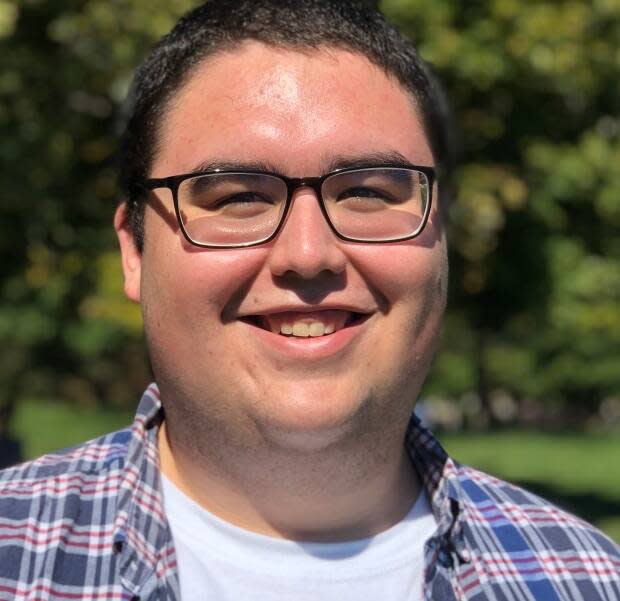Indigenous folktales come to life with horror short made on Walpole Island

Taye Alvis has been making movies since he was nine-years-old. Growing up on Walpole Island, Alvis heard stories about ghosts that roamed the area, and he wanted to bring those tales to life.
Now 21, the writer and director's short horror film When Shadows Dance at Night is part of the Forest City Film Festival.
"I grew up with a bunch of different stories, as I'm sure a lot of Indigenous people have," he said on CBC's Afternoon Drive earlier this week.
"Like a folktale, like these lonely spirits and, you know, not really sure of their motivations. And so I kind of wanted to take this story and figure out what that could be, what could the back story be to these spirits?"
The 16-minute horror film played Friday at Wolf Hall in London.
Alvis said he has a "certain love" for the genre.
"I like when things feel a bit bigger than life and horror — especially within the last few years — I think there's been kind of a renaissance with great filmmakers like, you know, Jordan Peele and Mike Flanagan, Rose Glass," he said.
"I think horror lends to a lot of experimentation and a lot of ways to communicate a message without necessarily telling it outright. And so I thought this would be a great genre to explore, but also to explore with Indigenous folklore and my own subject matter."

Filming
The movie was shot in January 2021.
"We shot it on my reservation of Walpole Island at my aunt's house," he said.
"So it was quite like a tough shoot and it was a cold shoot, but it was a lot of fun to, you know, kind of navigate that."
Because the timing of the shoot coincided with a COVID-19 lockdown in Ontario, Alvis said the entire cast and crew had to stay on the reservation for the duration of the shoot.
"Our whole cast and crew were staying in my relatives' homes. There were four houses that we were staying in and then we shot in my aunt's house," he said.

"It was familiar — that's something I've known my entire life, of course. And to be able to introduce, not only my cast and crew, but my friends to this kind of place where I grew up, it was a very incredible opportunity."
Alvis said he hopes people first and foremost enjoy the film, but also that this continues to push Indigenous film to the forefront in Canada.
"I think that only helps to kind of give rise to this new age of Indigenous cinema," he said, highlighting the work of Sterlin Harjo and Danis Goulet and how "their projects kind of exploding onto the scene."
"It's been shown that there's a demand for Indigenous storytellers, so I hope that I can, you know, kind of be a part of that as well in my own small way."

More from CBC Windsor:

 Yahoo Movies
Yahoo Movies 
